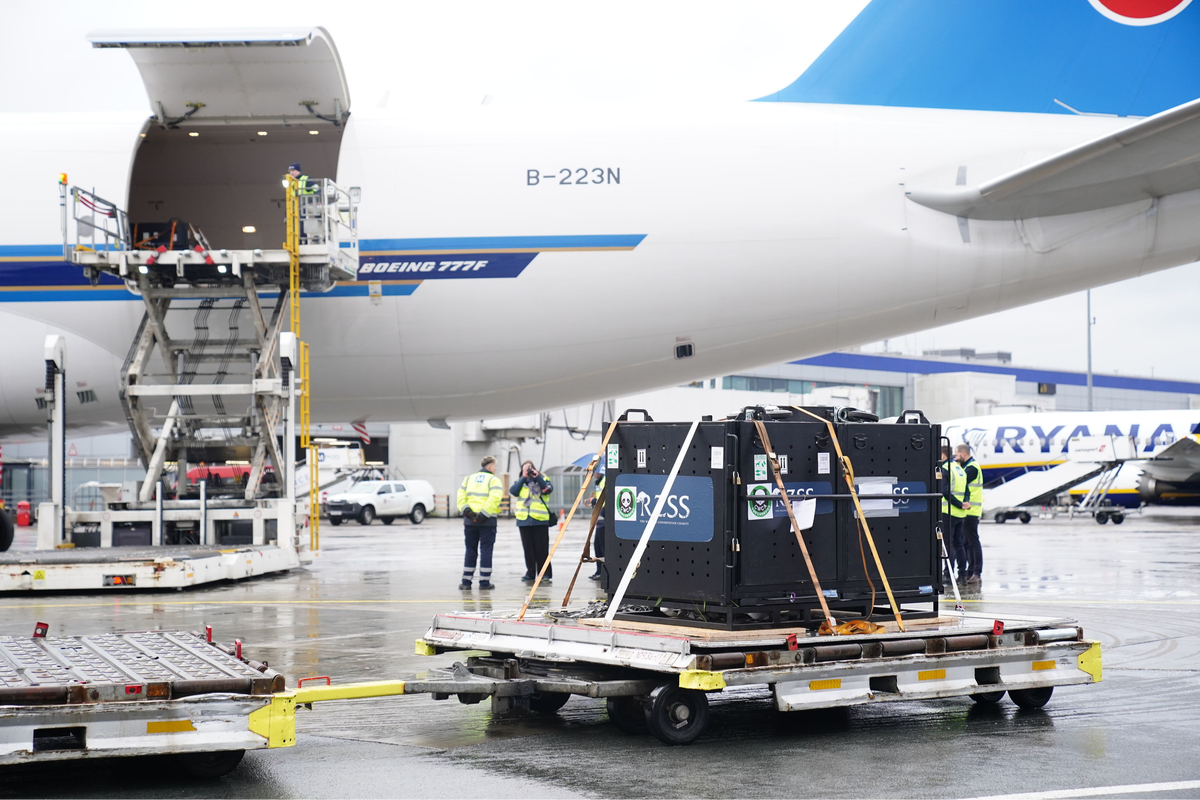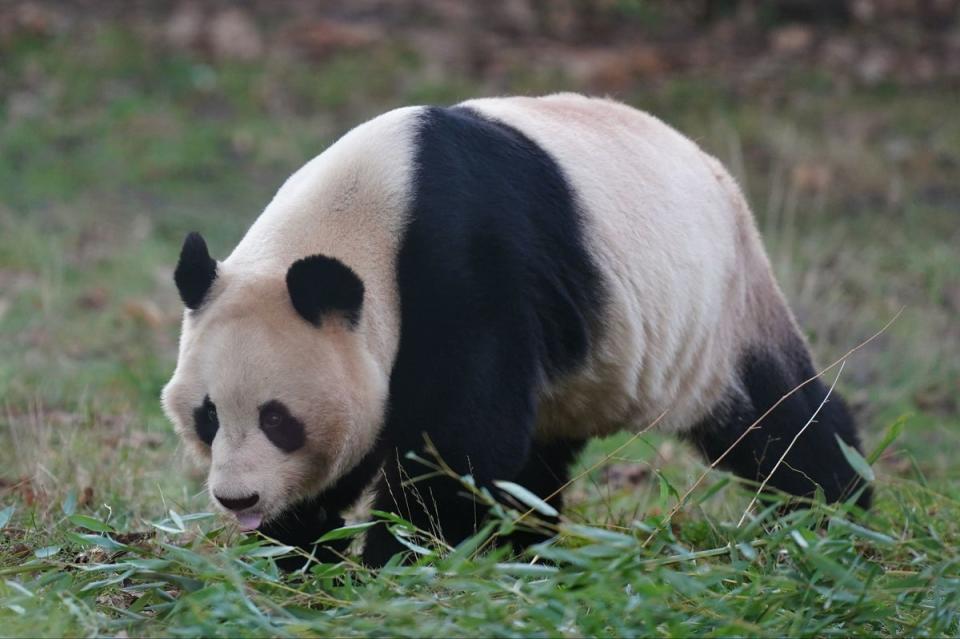Goodbye Yang Guang and Tian Tian! Britain's only giant pandas fly back to China after 12 years in Edinburgh

The UK’s only giant pandas left Edinburgh for China on Monday afternoon after spending 12 years in Scotland.
A plane carrying the two Edinburgh Zoo pandas, Yang Guang and Tian Tian, took off from the city's airport shortly before 2pm.
Yang Guang and Tian Tian came to Edinburgh Zoo in 2011 as part of a 10-year agreement between the Royal Zoological Society of Scotland (RZSS) and the China Wildlife Conservation Association, which was later extended by two years.
Visitors were given a final chance to say farewell to the bears on Thursday November 30 before they were prepared for their return to China.
The pandas have been in quarantine since the start of November and will also spend time in quarantine when they arrive in China, where they will live at a sanctuary in Chengdu.
They will each travel in a specially designed metal crate on the flight to China, accompanied by a keeper from Edinburgh Zoo and an RZSS vet.
It had been hoped female panda Tian Tian and male Yang Guang would breed while at the zoo, but they did not produce a cub.

Michael Livingstone, a senior animal keeper at the zoo, will join them on the journey.
He described looking after the pandas as the “highlight of my career” and said he will be sad to see them go.
He told the PA news agency: “They’re very different to look after, as a team we have looked after many different species of bear and we were fairly confident we knew what kind of hurdles we might need to cross and jump over for looking after pandas, and when they arrived it was completely different to what we thought.
“They are a very sensitive, very specialised species so we very quickly learned all the different things we needed to do with them or around them.
“Now that the day is creeping closer and closer, I can speak for myself and the other keepers in the team at the zoo that have looked after them it’s going to be a bit of a sad and emotional time.”
“It is sad for us that they are going back, I think it’s always been one of those things that’s just been in the future and now we’re at the point where it’s actually happening.”

Professor Simon Girling, head of veterinary services at the RZSS, said the pandas have been popular with staff and visitors alike and will be missed.
He told the PA news agency: “I think we’re all quite sad to see them go, they are two lovely individuals, lovely characters, and we’ve got to know them really well.
“I’ve been working with them ever since they came. I went over to China to see them before they came in and have been with them for the last 12 years.
“Everybody is pleased that they are fit and healthy and they’re going back to China in really good condition, but at the same time sad that after 12 years we won’t be seeing them here in Edinburgh any more.”
Prof Girling said the pandas’ presence at the zoo has helped with research and conservation efforts.
“It’s sad that Tian Tian hasn’t bred here, we would obviously really have liked her to have done so, but this is not unusual with giant pandas, they are difficult to breed, there is a reason why they’re endangered,” he said.
“But at the same time, we’ve been able to collaborate with so many researchers around the world and we’ve been able to draw so many members of the public in to understand our conservation message here, and I think that has been a really positive thing, and we’ve got two lovely healthy pandas so we’re really pleased with that.”
David Field, RZSS chief executive, said Yang Guang and Tian Tian have had an “incredible impact by inspiring millions of people to care about nature”.
He said: “Through scientific research by our expert veterinary and keeper teams, working alongside the University of Edinburgh, we have made a significant contribution to our understanding around giant panda fertility, husbandry and veterinary care – which has been of real benefit to efforts to protect this amazing species in China.
“It is encouraging that in recent years the outlook for giant pandas in the wild has improved, which gives real hope for the future.”

 Yahoo News
Yahoo News 
